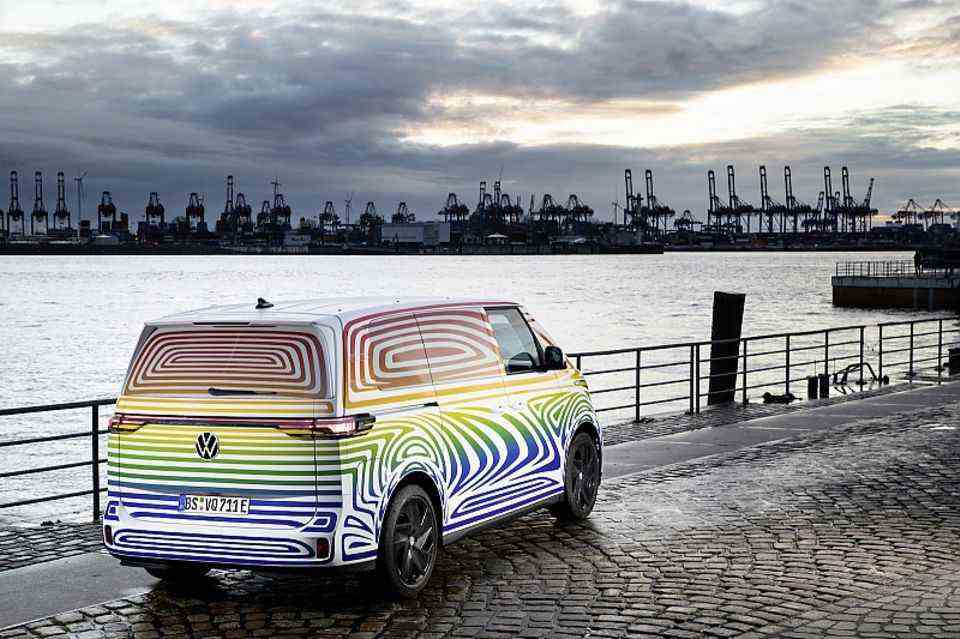VW emissions scandal
BGH awards residual damages to diesel drivers – VW is now threatened with the next wave of lawsuits
Numerous lawsuits in the diesel emissions scandal could come to VW (symbol photo)
© Hendrik Schmidt / DPA
Six and a half years after the VW emissions scandal broke, the train seemed to have long since left the train for many diesel plaintiffs. But now financial compensation is possible even for car owners who have not even gone to court to date. Is there a new wave of lawsuits against VW?
The Federal Court of Justice (BGH) has opened the door for new lawsuits against VW. The Karlsruhe judges ruled on Monday that affected diesel owners who have gone to court too late or not at all can still be entitled to financial compensation. However, the basic requirement for so-called residual damages is that the car was bought new. It’s not an option for used cars.
Buyers of new VW cars can still claim damages
The BGH has long since decided that Volkswagen must pay damages because of the illegal exhaust gas technology of the scandalous engine EA189. But the claims must be asserted within three years, otherwise they expire. And thousands have gone to court too late. Many others did nothing at all and therefore got nothing.
A special provision in the German Civil Code, paragraph 852, has therefore been the focus of legal disputes for some time. According to this, claims can still exist even after the statute of limitations has expired if “the person liable for compensation has obtained something through a tortious act at the expense of the injured party”. Because no one should make a profit from having harmed someone else – just because they didn’t complain in time.
The BGH has now decided for the first time that new car buyers can invoke this paragraph in the diesel scandal. It doesn’t matter whether you bought your car directly from VW or through a dealer. At the same time, the top civil judges confirmed the rulings of another Senate on February 10, according to which used car buyers generally get nothing.
Courts must determine the amount of damages in individual cases
It was also unclear what “obtained something” actually means – i.e. how much VW has to pay to the plaintiffs concerned. The Wolfsburg carmaker takes the view that this can only mean pure profit, so the manufacturing costs for the car must be taken into account.
However, the BGH sees it differently. The judges do not allow deductions, because VW “maliciously enriched itself”. The calculation is the same as for the actual compensation: VW has to refund most of the purchase price; when buying through a dealer, only his profit margin is deducted. For this, the customer must give up his car and have the kilometers driven taken into account.
How much money is left over is up to the courts to determine on a case-by-case basis. In the two model cases chosen by the BGH, the Higher Regional Courts in Koblenz and Oldenburg now have to catch up. The judges there had been of the opinion that the plaintiff and the plaintiff were generally not entitled to any residual damages and had therefore not dealt with the details in more detail.
Ten-year period for claims for damages
According to VW, around 3,000 court proceedings are currently underway for residual damages in new cars. According to a spokeswoman, these also include constellations to which the two BGH judgments cannot be easily transferred. It’s about customers who bought their car as a re-import, demonstration car or with one-day registration. Other cases concern diesel cars from the VW group brands Skoda and Audi, for which Volkswagen only manufactured the engine.
Those affected can still sue for residual damages. The period for this is ten years from the date of purchase. This means that a lawsuit is still an option for diesel owners who bought their car between February 2012 and September 2015. That’s when the scandal came to light.
Lawyer Claus Goldenstein, whose law firm conducts numerous Diesel cases, calls the decision “extremely important”. “VW is now threatened with a new wave of lawsuits,” he said.
However, the cars affected by the emissions scandal are now at least six and a half years old and in many cases should have plenty of kilometers on the clock. Here it can happen that the so-called compensation for use, which the plaintiffs have to pay to VW, almost eats up the original purchase price. Then there is the question of whether you really want to part with your car.
VW explained: “It depends on the individual case whether the assertion of such a claim makes economic sense for customers at all.” The amount of the claim is “very limited for the generally older and intensively used vehicles”.


